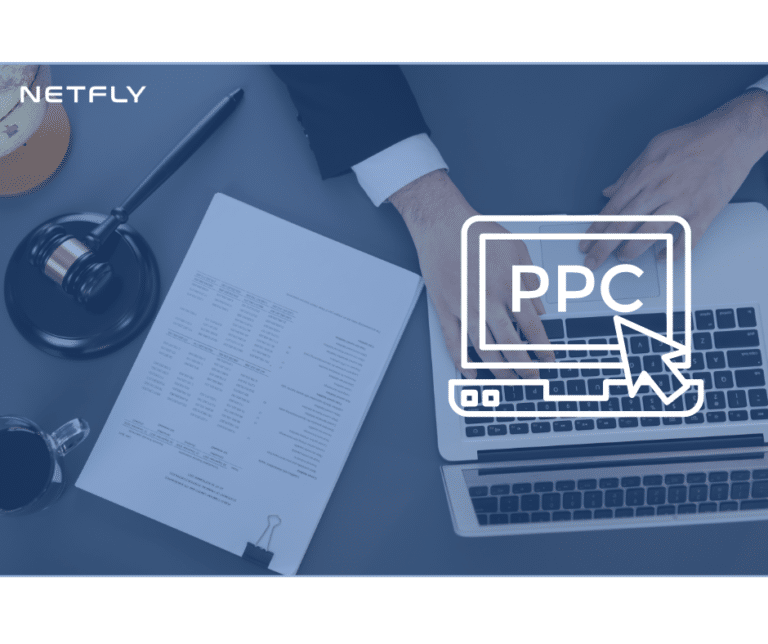Imagine a law firm as an F1 car navigating through a challenging race, where acquiring and retaining clients is akin to securing vital pit stops to maintain peak performance. As you aim to fortify your firm’s foundation and accelerate towards sustained growth, a well-crafted blueprint for client acquisition and retention becomes your strategic roadmap. The strategies you employ to attract and retain clients not only define your firm’s success but also lay the groundwork for cultivating lasting relationships and thriving in the competitive legal landscape.
Key Takeaways
- Develop personalized client acquisition strategies based on feedback and needs analysis.
- Implement data-driven marketing channels for targeted client outreach.
- Enhance client experience through tailored services and innovative value propositions.
- Foster loyalty by anticipating client needs and providing personalized services.
- Monitor market trends, adapt strategies, and refine client retention efforts for sustained growth.
Understanding Client Needs
Understanding your clients’ unique requirements is paramount for tailoring effective marketing strategies that drive growth and success for your law firm. Client feedback holds the key to accessing valuable insights that can shape personalized solutions to meet their needs. By actively listening to your clients’ feedback, you can gain a deeper understanding of their preferences, pain points, and expectations. This data-driven approach allows you to create tailored marketing strategies that resonate with your target audience on a more personal level.
Client feedback serves as a compass guiding your firm towards delivering personalized solutions that address specific client needs. By analyzing feedback trends, you can identify common themes and areas for improvement, enabling you to refine your marketing strategies continuously. This iterative process not only enhances client satisfaction but also fosters long-term relationships built on trust and understanding.
Innovative firms leverage client feedback not just as a tool for improvement but as a strategic advantage in a competitive market. By incorporating data-driven insights into your marketing approach, you can stay ahead of the curve and anticipate evolving client needs. This proactive stance positions your firm as a trusted advisor, capable of providing innovative solutions that resonate with your target audience. Embracing client feedback as a cornerstone of your marketing strategy is the first step towards building lasting client relationships and driving sustainable growth for your law firm.
Identifying Target Markets
When identifying target markets for your law firm, it’s essential to employ effective market segmentation strategies to pinpoint specific customer groups that align with your services.
Conducting thorough customer needs analysis allows you to understand the pain points and requirements of your target audience, enabling tailored marketing approaches that resonate with their unique demands.
Market Segmentation Strategies
To optimize your marketing efforts effectively, it’s imperative to meticulously analyze and segment your target markets based on precise criteria and data-driven insights. Demographic profiling and behavioral segmentation are key strategies worth exploring in this process.
By understanding the characteristics and behaviors of different market segments, you can tailor your marketing messages and strategies more effectively. Demographic profiling helps you categorize potential clients based on factors like age, gender, income, and location, providing a structured approach to targeting specific groups.
On the other hand, behavioral segmentation involves grouping clients based on their actions, preferences, and buying patterns, allowing you to create personalized marketing approaches that resonate with their needs. Implementing these market segmentation strategies will enable you to focus your resources efficiently and enhance your client acquisition and retention efforts.
Customer Needs Analysis
Conducting a thorough analysis of customer needs is pivotal in pinpointing target markets with precision and tailoring marketing strategies accordingly.
Analyzing preferences allows for a deep understanding of what drives your potential clients, enabling you to craft tailored solutions that resonate with their specific requirements.
By delving into data-driven insights, you can uncover trends, pain points, and unmet needs within your target market segments.
This strategic approach not only enhances the effectiveness of your marketing efforts but also fosters a strong connection with clients by addressing their unique demands.
Incorporating innovative techniques to gather and interpret customer feedback empowers you to stay ahead of the curve and adapt swiftly to changing market dynamics.
Crafting Compelling Value Propositions
Crafting compelling value propositions requires a strategic blend of innovation and data-driven insights to captivate your target audience and differentiate your law firm in a competitive market. To effectively communicate your value proposition, you must focus on essential elements such as unique selling points and effective messaging. Your unique selling points are what set your firm apart from competitors, highlighting what makes your services valuable to clients. Understanding your target audience’s needs and pain points is vital in crafting a value proposition that resonates with them.
Value communication is key in making sure that your message is clear, impactful, and compelling. Data-driven insights can help you tailor your value proposition to address specific client concerns and preferences. By leveraging analytics and market research, you can refine your messaging to showcase how your firm can solve clients’ problems better than anyone else.
Innovative strategies, such as using client testimonials, case studies, and interactive content, can further enhance the effectiveness of your value proposition. By continuously refining and testing your messaging, you can guarantee that it remains relevant and engaging to your audience. Crafting compelling value propositions is an ongoing process that requires a deep understanding of your clients and a dedication to delivering value in every interaction.
Implementing Strategic Marketing Channels
To optimize your law firm’s client acquisition and retention, consider implementing diverse marketing channels that resonate with your targeted audience.
By strategically engaging your audience through these channels, you can enhance brand visibility and attract potential clients effectively.
Leveraging data-driven insights and innovative approaches will be key to maximizing the impact of your marketing efforts.
Diverse Marketing Channels
Exploring diverse marketing channels strategically enhances a law firm’s outreach and engagement potential, propelling growth through innovative approaches and data-driven methodologies.
Leveraging social media platforms allows for targeted advertising, content sharing, and direct interaction with potential clients. Implementing email campaigns complements social media efforts by delivering personalized content, updates on legal trends, and event invitations directly to subscribers’ inboxes.
Targeted Audience Engagement
Implementing strategic marketing channels is essential for law firms to engage their target audience effectively and drive growth through data-driven approaches.
Personalized outreach and tailored messaging are key components in capturing and retaining the interest of potential clients. By leveraging data analytics, law firms can create targeted campaigns that resonate with specific segments of their audience, increasing the likelihood of conversion.
Understanding the needs and preferences of clients allows for the customization of communication strategies, ultimately leading to higher engagement and loyalty. Through a combination of personalized outreach efforts and tailored messaging strategies, law firms can establish meaningful connections with their target audience, fostering trust and long-term relationships that contribute to sustained growth and success.
Enhancing Client Experience
In optimizing the client experience for law firms, a data-driven approach is essential to guarantee strategic and innovative solutions are implemented effectively. To enhance client satisfaction and elevate service standards, law firms must explore deeply into client feedback, preferences, and behavior patterns. By analyzing data on client interactions, case outcomes, and communication channels, firms can tailor their services to meet specific client needs and expectations.
Implementing service enhancements based on data insights can lead to improved client satisfaction levels. By identifying pain points in the client journey and addressing them proactively, law firms can foster stronger client relationships and loyalty. This data-driven strategy allows firms to anticipate client needs, provide personalized services, and ultimately differentiate themselves in a competitive market.
Moreover, leveraging client feedback to innovate service offerings can set law firms apart from their competitors. By continuously seeking feedback, monitoring client satisfaction metrics, and adapting services based on client preferences, firms can stay ahead of the curve and continuously improve the client experience.
Incorporating data analytics into the client experience strategy enables law firms to make informed decisions, drive operational efficiencies, and deliver exceptional service that resonates with clients on a deeper level. By prioritizing a data-driven approach to enhancing the client experience, law firms can build lasting relationships, drive growth, and secure a competitive edge in the legal industry.
Leveraging Technology for Efficiency
Leveraging cutting-edge technology optimizes operational efficiency and enhances strategic decision-making in modern law firms. By embracing tech integration, you can revolutionize your firm’s processes and propel growth through efficiency optimization.
- Automate Routine Tasks: Implementing software to handle repetitive tasks such as document management and scheduling not only saves time but also minimizes errors, allowing your team to focus on high-value work.
- Enhance Communication: Utilize collaboration tools and secure messaging platforms to streamline communication within your firm and with clients. Real-time updates and secure channels can improve client satisfaction and internal coordination.
- Data Analytics: Harness the power of data analytics to gain insights into client behavior, case outcomes, and resource allocation. This data-driven approach enables informed decision-making and enhances your firm’s competitive edge.
- Virtual Solutions: Embrace virtual meeting platforms and remote access tools to facilitate client interactions and enable flexible working arrangements. This not only expands your reach but also demonstrates your adaptability in meeting client needs efficiently.
Monitoring and Adapting Strategies
To stay ahead in the competitive legal landscape, constantly monitor and adjust your strategies based on real-time data insights and market trends. Utilize adaptation tactics to refine your approach and guarantee that your client acquisition and retention efforts remain effective and efficient. By proactively monitoring key performance indicators and analyzing market dynamics, you can identify areas for improvement and implement strategic changes promptly.
Engaging in strategy refinement involves a continuous cycle of evaluation and adjustment. Evaluate the performance of your current strategies against predefined metrics and objectives. Identify what’s working well and what may need improvement. Use this data-driven approach to inform your decision-making process and guide the evolution of your client acquisition and retention strategies.
Adaptation tactics should be driven by a deep understanding of your target audience and their evolving needs. Keep a pulse on market trends, competitor activities, and changes in client behavior to stay nimble and responsive. Implement agile strategies that allow for quick adjustments based on real-time feedback and performance data.
Frequently Asked Questions
How Can Law Firms Effectively Measure Client Satisfaction?
When measuring client satisfaction, leverage client feedback through satisfaction surveys. These tools provide valuable insights into client experiences, helping you identify areas for improvement and gauge overall satisfaction levels.
Implementing strategic satisfaction surveys allows law firms to gather data-driven feedback, enabling innovative adjustments to enhance client relationships and service quality. By analyzing this information proactively, you can optimize client satisfaction and loyalty, fostering sustainable growth and long-term success.
What Role Does Storytelling Play in Marketing for Law Firms?
Imagine this:
Storytelling weaves the fabric of your law firm’s marketing strategy, creating a tapestry of client engagement. Through narratives, you forge emotional connections, setting your brand apart.
Stories captivate, resonate, and drive loyalty. They humanize your firm, making it relatable and memorable.
How Can Law Firms Personalize Client Experiences at Scale?
When personalizing client experiences at scale, law firms can leverage data-driven strategies. Implementing scalable solutions like segmentation based on client preferences and behavior allows for tailored interactions.
Utilize innovative technologies for efficient customization across communication channels. By integrating personalization strategies with automated processes, firms can enhance client satisfaction while managing large volumes effectively.
Establishing a balance between personal touch and scalability is key to building lasting client relationships.
What Are the Key Metrics to Track for Marketing ROI in Law Firms?
To track marketing ROI in law firms effectively, focus on key metrics like conversion rates from leads to clients and client feedback. Analyze marketing analytics to understand which strategies drive the most conversions.
Client retention rates are important indicators of success. By monitoring these metrics, you can optimize marketing efforts, enhance client experiences, and guarantee sustainable growth for your law firm.
How Can Law Firms Utilize Customer Feedback for Continuous Improvement?
Feeling lost in a whirlwind of opinions? Immerse yourself in the feedback loop; let the momentum of customer insights propel your F1 car to success.
Harness the power of their words to steer towards excellence. By listening, adapting, and evolving based on their feedback, you can fine-tune your services, ensuring a trajectory set for continuous improvement and client satisfaction.
Embrace this strategic approach to race towards innovation and growth in the legal arena.
Final Thoughts
As you navigate the competitive landscape of law firms, keep in mind that understanding client needs and crafting compelling value propositions are crucial to building loyalty and sustaining growth.
By leveraging technology for efficiency and continuously monitoring and adapting your strategies, you can stay ahead in the industry.
Embrace innovation and data-driven insights to differentiate yourself and enhance the overall client experience.
Your strategic approach will guarantee long-term success and solidify your position as a trusted partner in the legal landscape.










